Finding Hope Abroad: Bangladeshi Teenager Receives Treatment for ADEM in India
 03 July,2024
Read More
03 July,2024
Read More
Enquire now in case of any assistance needed
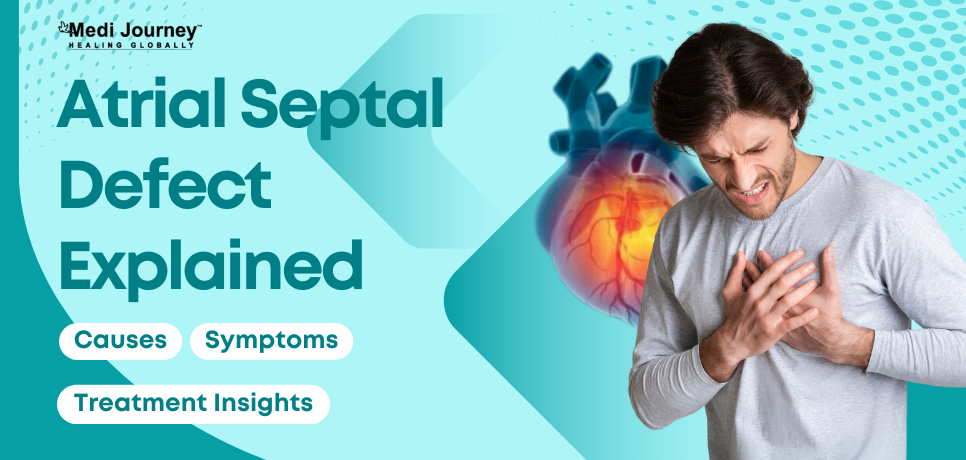
 14 March,2024
14 March,2024
Most of us have heard about a disorder in which there is a hole in the heart. Did you know it is medically termed as an atrial septal defect or ASD? ASD is one of the most common congenital (birth) heart defects, accounting for ~19% of all congenital cardiac anomalies. In India, approximately 25% of infants are born with atrial septal defects. Only some people require treatment, as most of the defects resolve on their own in the first year. However, if the hole does not close itself, surgical intervention is required.
It is not necessary for a baby to develop symptoms of ASD as soon as he or she is born. Sometimes, the symptoms are so mild that they become difficult to identify until adulthood. Read the blog further to learn complete details about the disease, its symptoms, diagnosis, and treatment.
An atrial septal defect is marked by an opening in the wall (septum) separating the heart's upper right and left chambers (atria). During pregnancy, several openings in the heart occur, which close as the baby develops. Some of them even close after the child is born. However, if these openings do not close, a hole is created, which increases blood flow to the lungs.
If left untreated, an ASD can cause the heart and lungs to work more and even damage the lung arteries. Surgery is usually recommended to treat large ASDs.
There are four types of ASDs:
Atrial septal defects are present from birth. However, if the defect is not large enough (<5mm), it may not affect the functioning of the heart and lungs. Small ASDs do not show any distinctive signs and symptoms.
ASD symptoms in children: A child with ASD shows heart murmurs as the most prominent symptom. Other signs include being underweight, growth delays, and recurrent respiratory infections. Some of the rare symptoms are arrhythmias, trouble breathing, and fatigue.
ASD symptoms in adults: Atrial septal defect symptoms in adults can be delayed until the age of 40. The extent of damage to the heart and lungs decides the symptoms ASD will show. Typical signs in adults include:
ASD can be diagnosed in infancy, childhood, or even adulthood, depending on its size and severity. Various diagnostic tools and tests are used to identify ASD:
The precise cause of ASD is often unknown, but it is a congenital condition, meaning it occurs during fetal development. Several factors may contribute to the development of ASD:
Although most of the atrial septal defects occur spontaneously and without a particular reason, several factors increase the chances of an infant being born with ASD, including:
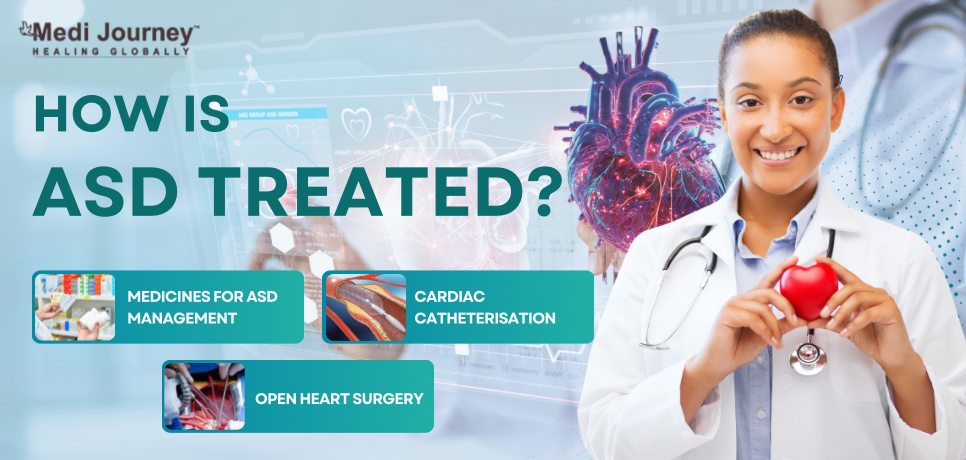
There is a ~80% chance that a small ASD or hole in the heart will close within the first 18 months of life. If the hole does not close after three years, the cardiologist will recommend medical/surgical intervention. The type of treatment will depend upon the size of ASD and how it affects the heart and lungs. The standard treatment approach for ASD includes:
Currently, no medicines can repair or close atrial septal defects. The cardiologist might prescribe a few drugs to manage symptoms. These include:
Traditional open heart surgeries are now replaced with minimally invasive and robotic heart surgeries. They offer smaller incisions, better results, quicker recovery, and fewer complications.
Minor atrial septal defects are not likely to cause any complications. However, more significant and long-term ASDs can have the following consequences –
In conclusion, atrial septal defect (ASD) is a congenital heart defect with various causes, including genetic factors, environmental influences, and maternal health conditions. Getting to know that you have a hole in the heart can be an alarming experience. It's more daunting to know if your child has it. However, with the help of modern medicine, ASDs are now effectively managed with various techniques. And you or your child might not require surgery as most ASDs resolve on their own. Talk to expert cardiologists who will help you decide the best course of treatment for you. With appropriate treatment, individuals with ASD can lead healthy lives and reduce the risk of complications.
Doctor of Pharmacy
Dr. Deepanshu Siwach is a skilled clinical pharmacist with a Doctor of Pharmacy degree. He has 4+ years of experience and has worked with thousands of patients. He has been associated with some of the top hospitals, such as Artemis Gurgaon and Teerthanker
Dr. Aseem Ranjan Srivastava is an experienced Pediatric Cardiothoracic Surgeon specializing in Minimal Access and Robotic Cardiac Surgery. He strongly recommends prompt corrective repair when possible....
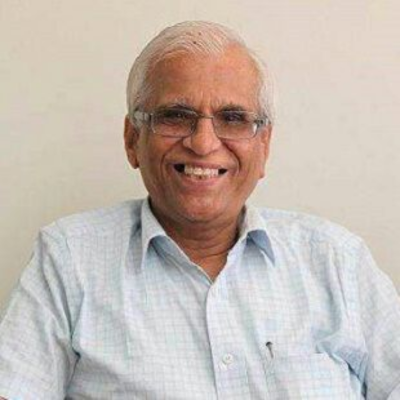
Senior Consultant
Medical Oncologists
Nanavati-Max Super Speciality Hospital, Mumbai
View Doctor Profile Book an Appointment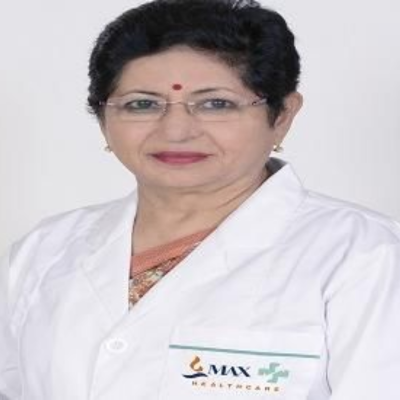
Senior Director
Gynecologist and Obstetrician, IVF Specialist
Max Super Speciality Hospital, Shalimar Bagh, New Delhi
View Doctor Profile Book an Appointment
Senior Director
Gynecologist and Obstetrician, IVF Specialist
Max Smart Super Speciality Hospital, Saket, New Delhi
View Doctor Profile Book an Appointment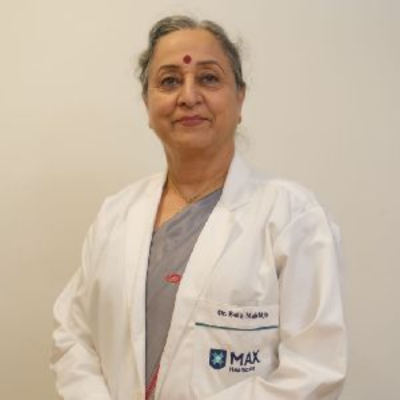
Senior Director
Gynecologist and Obstetrician
Max Smart Super Speciality Hospital, Saket, New Delhi
View Doctor Profile Book an Appointment
Senior Director
Gynecologist and Obstetrician
Max Smart Super Speciality Hospital, Saket, New Delhi
View Doctor Profile Book an Appointment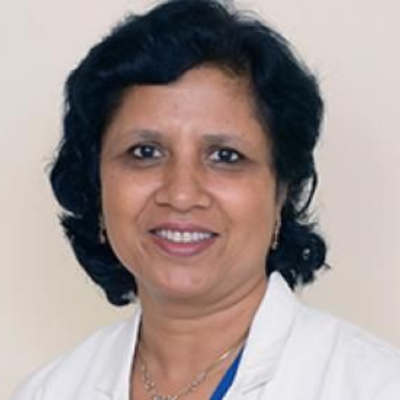
Senior Director
Gynecologist and Obstetrician
Max Smart Super Speciality Hospital, Saket, New Delhi
View Doctor Profile Book an Appointment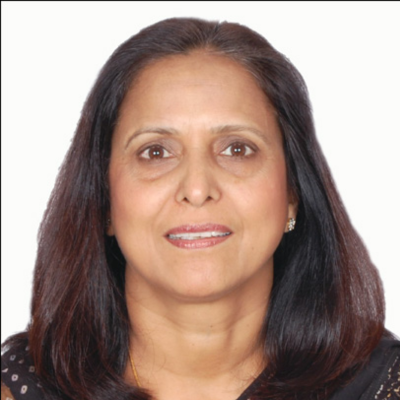
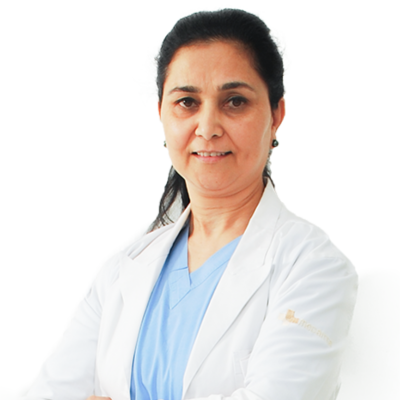
Chairperson
Gynecologic Oncologist, Gynecologist and Obstetrician
Medanta - The Medicity Hospital, Gurgaon
View Doctor Profile Book an Appointment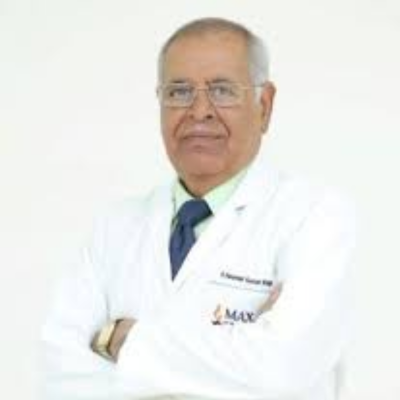
Head of Department (HOD)
Orthopedic and Joint Replacement Surgeons
Max Smart Super Speciality Hospital, Saket, New Delhi
View Doctor Profile Book an Appointment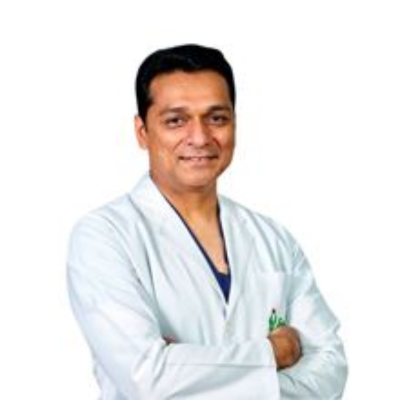
Senior Director
Orthopedic and Joint Replacement Surgeons
Fortis Memorial Research Institute (FMRI), Gurgaon
View Doctor Profile Book an AppointmentFill up the form and get assured assitance within 24 hrs!
The Art of Effective Communication
 03 July,2024
Read More
03 July,2024
Read More
 28 June,2024
Read More
28 June,2024
Read More
 27 June,2024
Read More
27 June,2024
Read More
 25 June,2024
Read More
25 June,2024
Read More
 20 June,2024
Read More
20 June,2024
Read More
 13 June,2024
Read More
13 June,2024
Read More
 29 May,2024
Read More
29 May,2024
Read More
 28 May,2024
Read More
28 May,2024
Read More
 24 May,2024
Read More
24 May,2024
Read More
 23 May,2024
Read More
23 May,2024
Read More
Trusted by Patients
"I am Asim from Bangladesh and was looking for treatment in India for neuro. I visited many websites to get the complete information regarding the treatment but I was not satisfied as I was getting confused. In the meanwhile, one of my friends suggested I seek help from Medi Journey as he experienced his medical journey very smoothly and was satisfied with it. They have filtered the top 10 doctors as per experience, the success rate of surgery & profile, so it helps us to choose the best treatment in India. "
"For my knee surgery, Medi Journey guided me to BLK Hospital where I received exceptional care. The team's support and the expertise at BLK Hospital exceeded my expectations. Thank you Medi Journey for making my medical journey stress-free. "
"I came from Iraq for my granddaughter's eye surgery in India facilitated by Medi Journey, due to critical cases they advised us to get a second opinion from the different hospitals before going to surgery. Finally, we went to Fortis Escort Hospital, which helped us to get more confidence for diagnosis. Fortis Escort Hospital has the best eye surgeon team with the latest instruments. Thanks to all team members for providing a high-quality treatment in India at an affordable cost. "
"I came for my hair transplant in India, before coming I was so confused about choosing the best clinic and surgeon for me. But thanks to God one of my friends had a hair transplant in India through Medi Journey. He recommended me to go with them. I am completely happy with my experience with them. They were always very fast in their responses to me. the success rate of my hair transplant surgery is 100%."
"Artemis Hospital, suggested by Medi Journey, turned out to be a great choice for my treatment. The personalized assistance and medical care were exceptional. I'm grateful to Medi Journey for guiding me to a hospital that perfectly matched my needs. Highly recommended! "
"I came from Afghanistan for my treatment in India at Jaypee Hospital, Noida. I had a fantastic experience with Medi Journey. Kudos to them for their incredible support during my medical journey. They not only took care of all the logistics but also connected me with a fantastic healthcare team. Efficient, caring, and highly recommended for a hassle-free medical tourism experience."
"I am Adam from Kano, Nigeria, one of my friends from Nigeria was facilitated by Medi Journey, and he recommended us to go with them. I sent my all reports to them and within 48 hours they reverted with 4 options from different hospitals. They helped me to get a Visa letter from the hospital, arrange pick-up from the airport, and book a hotel for me. Their team is very honest and throughout our stay in India they are with us they are caring for us like his family members. BLK Hospital is the best hospital in India with a top surgical oncologist surgeon team, a very advanced OT, and a Radiotherapy department. I wish more success to Medi Journey. "
"Great experience at the Max Hospital for my spine surgery and was successfully done. I thank my neurosurgeon and his entire team. I recommended all of my country's people to Medi Journey for treatment in India, they choose the best hospital, the best doctors, and the best cost for patients."
"I came to India from Dhaka, Bangladesh for my father-in-law's cardiac surgery at Fortis Hospital. I was confused about choosing the best surgeon for him before coming, but their team helped me to choose the best hospital and best cardiac surgeon in India with very good cost and 100% success rate of surgery. I am very happy with the services, really they make my journey so comfortable that make me feel at home. Thanks again and I like people to choose "Medi Journey" as your travel guide. "
"I am Mohammad from Bangladesh came to India for my general health checkup. Medi Journey offers me the complete package including Pick-up from the airport, hotel services, and 24-hour assistance. They guide you to choose the best hospital in India, the best cost of treatment with top-most doctors and give you complete information about hotel booking, and pick-up from the airport before coming to India They have the best team to help. Always choose Medi Journey for your treatment in India."